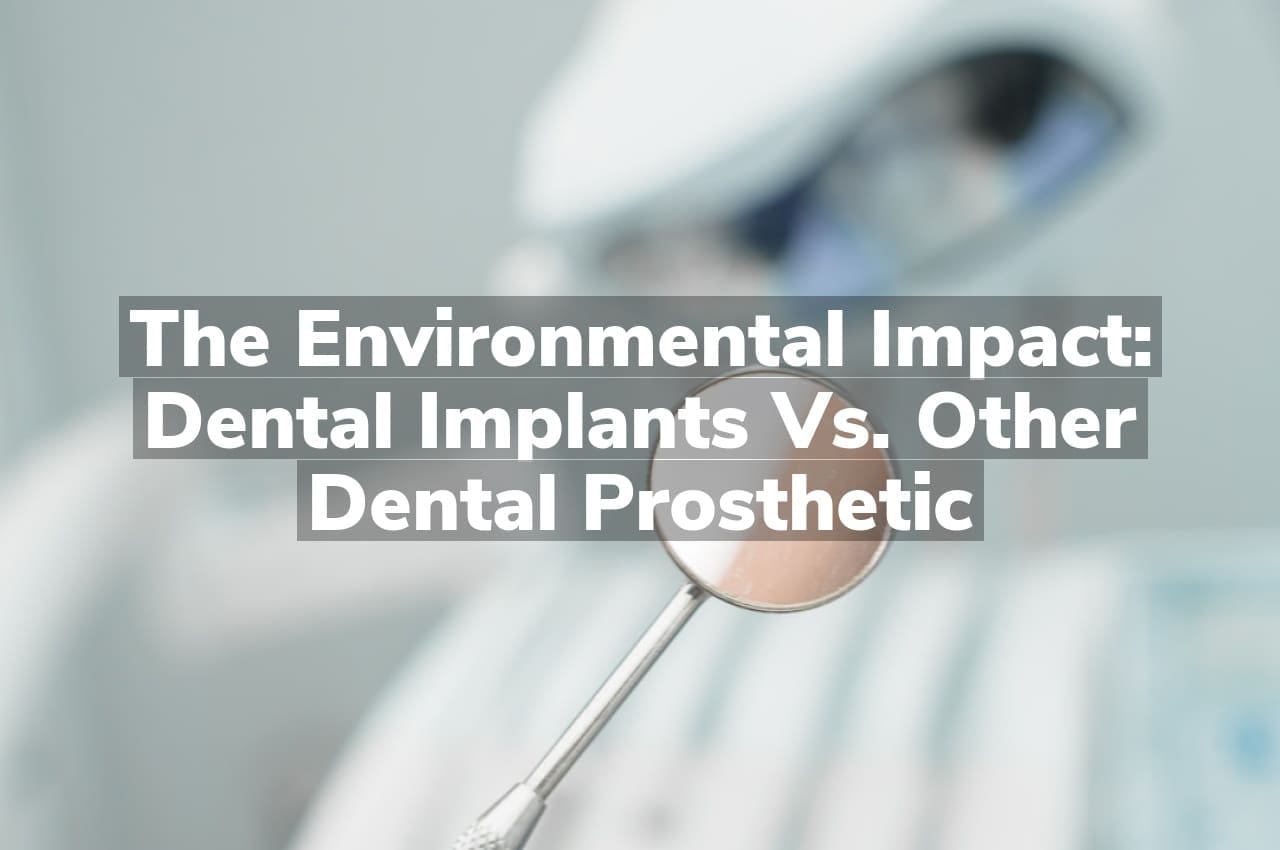Have you ever wondered about the environmental impact of different dental prosthetics? At Thompson Family Dental at Nora, we are here to help you understand the differences between dental implants and other dental prosthetics, so you can make an informed decision about your oral health.
The Environmental Impact of Dental Implants
Dental implants are a popular solution for replacing missing teeth, offering a permanent and natural-looking alternative to other dental prosthetics. But what is the environmental impact of dental implants?
When compared to other dental prosthetics, such as dentures, bridges, and crowns, dental implants are a more sustainable option. They are made of titanium, a biocompatible material that is 100% recyclable. This means that, unlike other dental prosthetics, dental implants do not require the use of non-renewable resources and can be recycled and reused.
The Environmental Impact of Other Dental Prosthetics
Traditional dental prosthetics such as dentures and bridges are typically made from a variety of materials, including plastic, metal, and porcelain. While these materials are non-toxic and often recyclable, the manufacturing process for these prosthetics can be quite energy-intensive and polluting. The production of porcelain and metal prosthetics requires high temperatures, which can release pollutants into the atmosphere. In addition, the production of plastic prosthetics requires the use of chemicals that can have a negative environmental impact.
In comparison, dental implants are made from titanium, a biocompatible metal that is not only non-toxic but also recyclable. The production process for titanium implants is significantly less energy-intensive and does not require the use of hazardous chemicals, making them a much more environmentally friendly option. For those looking for an eco-friendly option for their dental prosthetics, Indianapolis Dental Implants are an excellent choice.
Benefits of Dental Implants from an Environmental Perspective
Dental implants are a great choice for those looking for a long-term solution to their dental needs. Not only are they more comfortable and natural-looking than other prosthetic options, but they also have a positive environmental impact. Dental implants are made from biocompatible materials that are non-toxic and dont require the use of harmful chemicals or processes. Furthermore, they dont need to be replaced as often as other prosthetic options, resulting in fewer resources being used over time.
Advantages and Disadvantages of Dental Implants from an Environmental Perspective
Dental implants are a great solution for replacing missing teeth, but their environmental impact should be considered. On the plus side, dental implants are made from titanium, which is a biocompatible material that is non-toxic and non-allergenic. This means that it does not leach any toxins into the environment like other prosthetic materials. Additionally, dental implants are designed to last a lifetime, so they don’t need to be replaced like other prosthetics, reducing the amount of waste created. On the downside, dental implants require a lot of energy to produce, and the titanium used to make them is a finite resource.
The Impact of Dental Implants on Local and Global Environmental Issues
Dental implants are a great way to replace missing teeth and provide a long-term solution for those looking for a more permanent solution. However, it is important to consider the environmental impact of dental implants. Dental implants are made of metals which can be recycled and reused, but the materials used in the manufacturing process have an impact on the environment. Additionally, the energy used to create and install dental implants can have an effect on the environment, both locally and globally.
Conclusion
At Thompson Family Dental at Nora, we understand the importance of making eco-friendly decisions when it comes to your dental health. If you have any questions about dental implants or other prosthetic options, please call us at (317) 846-9444.

